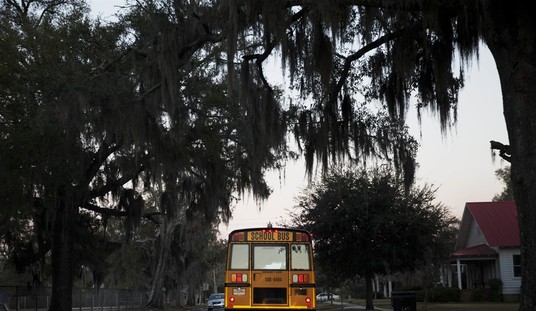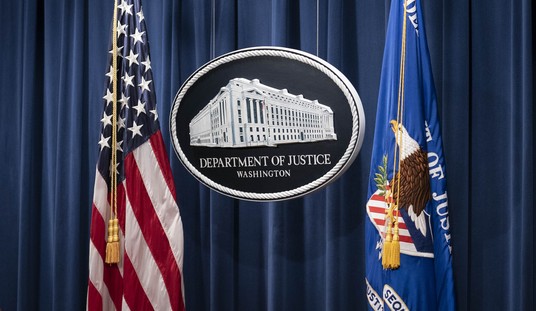A federal judge in Minnesota has dismissed a lawsuit filed by two truck drivers who had challenged Minnesota’s refusal to recognize firearm permits lawfully issued by most other states, ruling that the state's permitting regime and lack of reciprocity provision are constitutional.
McCoy v. Jacobson was filed back in January, with the Liberty Justice Center representing the two plaintiffs. David McCoy and Jeffrey Johnson argued that Minnesota’s failure to honor permits from all states (Minnesota accepts permits from 33 other states) places an unreasonable burden on the right to bear arms.
"Individuals do not lose their constitutional rights simply by crossing into another state," the plaintiffs argued in their initial complaint, adding that "there is no other constitutional right that Minnesota requires a visiting individual to first obtain permission before they may exercise a fundamental right."
While U.S. District Judge John R. Turheim acknowledged the pair's Second Amendment rights were implicated by Minnesota's restrictive policies, the judge declared that since non-residents can apply for a carry permit, and the state recognizes out of state licenses with "similar" permitting laws, the state is not inflicting any Second Amendment injury to non-residents who want to bear arms in the Land of 10,000 Lakes.
The requirement that individuals obtain a permit before carrying firearms in the state of Minnesota is consistent with a longstanding tradition of government regulation to ensure that only law-abiding, responsible individuals bear arms. In Rahimi, the Supreme Court elaborated on the history of firearm regulation, which allowed the government to proactively provide firearm security measures. Here, Minnesota’s permitting regime is designed to prevent violence before it occurs by screening individuals for responsibility and lawfulness, much like surety laws which “provided a mechanism for preventing violence before it occurred.” And Minnesota’s reciprocity provision is an extension of these preventative measures. By conditioning out-of-state permits on whether permitting standards are substantially similar to Minnesota’s, Minnesota ensures that its public safety standards are not circumvented.
Second, the permitting regime and reciprocity provision also satisfy the “why” part of Bruen’s historical analysis. The licensing process, which includes an in-person application, background check, and processing time, serves the legitimate governmental interest of ensuring public safety. Indeed, the Court is persuaded by the Bruen court’s explicit acknowledgement that “shall-issue” regimes designed to ensure that “those bearing arms in the jurisdiction are, in fact, ‘law-abiding, responsible citizens’” are presumptively constitutional.
How does requiring someone to submit an application in person, instead of through the mail or online, serve the interest of public safety? Turheim doesn't say.
As Turheim points out, the Supreme Court has already presumed that "shall issue" licensing regimes are constitutional, so I'm not surprised that the judge upheld Minnesota's carry laws. But the Court also said that things like excessive wait times or exorbitant fees can render "shall issue" permitting laws unconstitutional, and I'd argue that forcing non-residents to travel to a state where they want to carry just so they can drop off their application is absolutely an undue burden on their Second Amendment rights.
Johnson also argues that Minnesota’s reciprocity provision specifically is not historically supported. But this provision does not independently burden Second Amendment rights. Instead, it merely establishes the scope of recognition of out-of-state permits. If anything, Minnesota’s reciprocity provision makes it easier for individuals like Johnson to carry firearms in Minnesota; it does not add additional restrictions regarding who can or cannot carry firearms in Minnesota.
Further, the provision does not prohibit out-of-state residents from carrying firearms in Minnesota but rather requires that their out-of-state permits have similar licensing standards to those endorsed by Minnesota’s legislature. Nothing in Bruen or the Constitution requires states to adopt or defer to the licensing standards of other states. Indeed, states retain authority under their police powers to regulate who may carry firearms within their borders.
Lawsuits that challenge the outright ban on non-residents carrying, like the licensing regime in California, have been successful in at least opening the door for non-residents to be able to apply for a permit, but so far no federal court has accepted the premise that a carry license, just like a driver's license, should be valid in all 50 states under either the Second Amendment or the Full Faith and Credit Clause of the Constitution.
In an amicus brief recently filed as part of a challenge to Massachusetts' non-resident carry permitting scheme, 25 attorneys general argued that there is "no well-established historical tradition of barring nonresidents from transporting or possessing firearms while traveling,"
In this case, while modes of transportation have changed since the founding, “efforts to curb violence committed by those who are traveling certainly are nothing new.” Accordingly, for the Commonwealth’s scheme of strictly enforcing its license-to-carry regime against travelers using the punishing stick of the criminal law to pass constitutional muster, the Commonwealth must identify a “distinctly similar historical regulation” addressing the carriage of firearms by travelers.
This Nation’s history and tradition surrounding firearms regulations for travelers and permitting regimes does not support Massachusetts’s strict application of its permitting regime to transitory nonresidents. At the time of the founding, ordinary Americans would have understood the Second Amendment to protect the right to travel with a firearm because traveling without one presented signifcant dangers. As this Court has recognized, “[m]any Americans hazard greater dangeroutside the home than in it.”
The brief cites several 17th century colonial laws requiring travelers to be armed, which arguably are too old to have much relevance to the right to keep and bear arms as it was understood 150 years later when the Second Amendment was ratified. But the AGs also note that later laws regulating the carrying of firearms often provided exemptions for travelers.
For example, an 1831 Indiana statute prohibited “[e]very person, not being a traveler” from “wear[ing] or carry[ing] a” concealed “dirk, pistol, sword in a cane, or other dangerous weapon.”
In 1871, Texas enacted a statute forbidding “any person” from carrying “about his person, saddle, or in his saddle bags, any pistol,” but the statute exempted “‘persons traveling’ to and from Texas.” California’s 1863 “armed carriage law” also included a “travelers” exception, as did an 1870 statute inTennessee. In 1887, the then-territory of New Mexico enacted a law prohibiting the carriage of any deadly weapon, “either concealed or otherwise,” but allowed travelers to “carry arms for their own protecting while actually prosecuting their journey.” The New Mexico statute required travelers to “remove all arms from their person” if they “stop[ped]” their journey “for a longer time than ffteen minutes,” but allowed travelers to “resume the same” upon the “eve of departure.”
I think its fair to say that the national tradition of firearm ownership has never subjected travelers to more restrictions than those bearing arms close to home, and there's ample evidence that the tradition actually affords travelers more leeway in bearing arms.
This history is utterly absent from Turheim's analysis. Maybe it wouldn't have made a difference to his conclusion if he'd considered the laws cited by the AGs in Marquis v. Commonwealth of Massachusetts, but hopefully this history will matter to the Supreme Court when it considers granting cert to the lawsuit later this fall.
As for the plaintiffs in McCoy, there's been no word on if they'll appeal to the Eighth Circuit. I hope they do, because Turheim's opinion is sorely lacking the deep analysis required under the "text, history, and tradition" test laid out by the Supreme Court in Bruen, and I'm curious to see what a broader panel of judges would conclude if presented with the history Turheim ignored or was unaware of.









